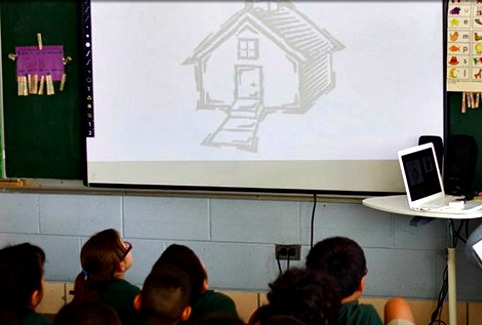My first few years in the classroom were in charter school settings. Given that we were “at-will employees,” the concept of formalized bargaining arrangements seemed foreign to me. It wasn’t until the end of my second year at my first school that I realized the need for a more formalized opportunity to negotiate salaries.
Our school didn’t even have a set salary schedule and instead made offers to teachers on an individual basis. Unfortunately, as a new teacher with little professional experience, I was on the lower end of the scale, regardless of the number of units I had earned in college. Realizing that there was no one I could go to for guidance in negotiating my salary, a few teachers and I decided to bring it up formally to our leadership team. After many meetings and discussions, the Board agreed to implement a salary schedule that was transparent and allowed for fair pay. While this was a success, I wanted a new challenge and chose to resign and sought employment in a more established charter organization.
My new workplace also lacked a union but had a transparent salary schedule and clearer expectations for all teachers. This more established charter organization was also a strong proponent of merit-pay and changed its compensation to include formal evaluations and student surveys, as a means of retaining the most effective teachers and compensating them for their work.
Now that I am in a traditional setting and working as a Digital Learning Instructional Coach, with a teachers union doing the legwork to negotiate raises and class sizes as well as stipulations around evaluations and stipends, I realize that the grass is not always greener. As much as I want to believe that my informal arrangement at my charter school was not the best way to go, without the formalized union involvement, as teachers, we had more opportunities to voice our concerns and advocate for ourselves directly.
Back then, my colleagues and I could plan Saturday field trips, and the school would support us as long as we provided a funding plan. Back then, rallying teachers to help chaperone after school dances or volunteer with lunch activities was easy, as all teachers were aware that our school’s success was reliant on our efforts as a team. Now, getting teachers to volunteer for anything feels like an impossible mission as there are contract issues that surface when any teacher is asked to work “out-of-work hours.” In a traditional setting, anything outside of our contract hours involves additional permissions as extra-pay is “necessary,” and there is a protocol to follow.
I miss working in a setting where all teachers were simply expected to go above and beyond. I can admit that at times, I questioned the sustainability of our work and even battled burnout, but not having a union helped us be self-reliant. We were able to seek additional opportunities for leadership advancement ourselves and didn’t rely on the bureaucracy of traditional settings; I remember requesting the opportunity to serve as the Leadership teacher and being offered the class soon after asking. Although I had initially requested the opportunity to gain leadership experience, I was compensated for my work, which only motivated me to continue going above and beyond the minimum job requirements.
I know that a union is meant to provide teachers protection and job security, but aren’t unions also intended to help us focus on being the best educators? Why must bargaining arrangements around our contract hours and “duties” make it feel like we are confined to a specific role, and anything outside of that requires extensive paperwork and unnecessary permissions? Why can’t those teachers who go above and beyond be rewarded? Why can’t we allow for teachers to advocate for themselves and negotiate their own salaries rather than settle for whatever the bargaining committee negotiates? In reality, not ALL teachers are represented at the table in the first place.
I am not against formalized bargaining negotiations, but I am concerned that some teachers get away with doing the bare minimum because they are protected no matter what they do or neglect to do. In my view, protecting teachers who only do the bare minimum contributes to higher-achieving teachers suffering burnout faster because of the lack of support from their ‘not as motivated’ colleagues. There has to be a balance; there has to be a better way to negotiate and implement work hours in a way that is sustainable and puts students first. Until that balance comes into play, we will continue struggling as schools are only as successful as the team working in them, and the teachers who just do the bare minimum are not characteristic of any high-achieving school.
As educators, we have to hold ourselves accountable so that when we do ask for more compensation or better benefits, we are putting forward the best representation of our profession and not allowing those who make the minimal efforts to drag us down.

